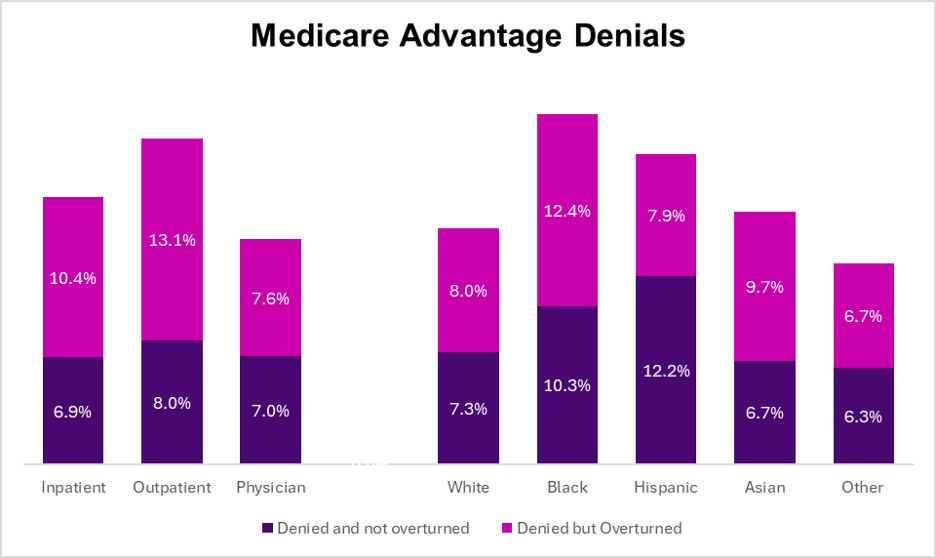What we can learn from reporting on denials in Medicare Advantage plans
June 17, 2025
Summary: Denials of claims in Medicare Advantage plans are quite common and appear to more frequently impact people of color.
Source: Vabson, et al Health Affairs, June 2025
Claims denials have been in the headlines a lot lately - especially around Medicare Advantage plans, where the government pays health plans a flat fee and insurance plan profits depend on lower medical utilization and spending. Research published in Health Affairs reviewed 270 million Medicare Advantage claims from 2019, and found that one in six (17%) claims were initially denied. Of these denials, 57% were ultimately overturned. The researchers point out that the burden of appealing these denials falls on participating providers, who generally are prohibited from billing patients for the denied services. They estimate that total provider payments were decreased by 7% due to denials that were not overturned.
Insurance company denial rates could be higher for plans where the insurer bears financial risk, including Medicare Advantage plans and fully-insured plans. However, there have been recent complaints about denial rates in self-insured employer-sponsored health plans, too.
This initial denial rate seems especially high, considering that there are a huge number of claims that should never be denied (such as flu shots or annual preventive visits or routine blood tests). Researchers, public policy makers, and patients need more granular data on denials to truly understand the implications. Health plans should provide information about rate of denials for categories of service, ranging from elective surgery to oncology treatment to mental health services.
Implications for employers:
Employers can ask their carriers to report on denial rates by category of service, as well as results of appeals, and can require reporting on denial rates when they are procuring health plan services.
It’s reasonable to expect some denials; some providers don’t follow evidence-based guidelines, and some provider treatments may not be medically appropriate and could even hurt patients.

